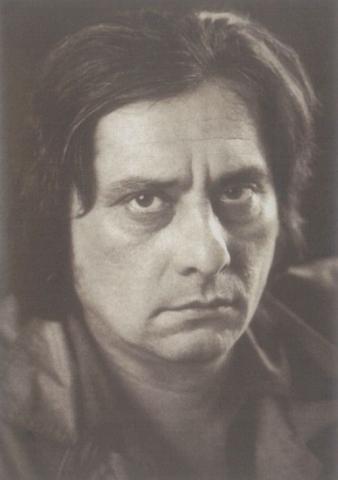Páskándi Géza: Biography
Géza Páskándi (Viile Satu Mare, Romania, 18 May 1933 – Budapest, 19 May 1995)
Kossuth and Attila József Prize-winning poet, writer, essayist, playwright, publicist. He was elected a posthumous member of the Digital Literature Academy in 2011.
*
„Our destiny is on the stage before we are born.
With one hand our mother rocks the cradle…”
Born on 18 May 1933 in Viile Satu Mare, Romania, Géza started his schooling in Satu Mare. He continued his high school studies there but completed his studies in Cluj-Napoca.
He entered the literary world almost as a child. In 1949, his first poems were published in the Satu Mare newspaper Dolgozó Nép, and they attracted the attention of Erik Majtényi, editor-in-chief of the Bucharest-based Ifjúmunkás. He was invited to join the staff of the journal, where he worked until 1953. During this time, he also published regularly in the Bucharest journal Előre.
In 1953, he enrolled at the Bolyai University of Cluj, where he studied Hungarian Language and Literature, and for a short period also law. He was not allowed to complete his studies at the university level because he was arrested in 1957 for his support of the 1956 Hungarian revolution. He was charged with sedition against the state and public order. After six years in prison – three years in a cell in Gherla and three years of forced labour in a camp in the Danube Delta – he was released from Salcia with amnesty in February 1963. For the next two years he worked as a stevedore and then as a warehouse clerk in a Bucharest bookstore.
In 1965, he regained his right to publish. From 1969, his criminal record was expunged (a fact that was reaffirmed by the law of 6 January 1990, following the regime change in Romania), and he was granted the right to become a member of the Romanian Writers’ Association. From 1970 to 1974, he was editor-in-chief of the Cluj branch of the Kriterion Publishing House in Cluj-Napoca.
In the spring of 1971, the Ceauşescu regime’s so called „cultural revolution” led to fierce attacks against him in both the communist party’s Romanian- and Hungarian-language press, resulting in the blacklisting of several of his works. The première of his absurdist play Please Wipe the Foot (Kérjük a lábát letörölni) at the Studio Theatre in Oradea was a source of extreme irritation for Romanian politics. Harsh retribution followed: he was labelled „a preacher of imperialism”, subjected to constant surveillance, and even his very existence was threatened. When the atmosphere became too suffocating for him, he decided to move to Hungary with his family.
In February 1974 – on a second attempt – Sándor Csoóri and his close circle of friends helped him to resettle, and in the same year, his wife Anna Sebők and their daughter Ágnes joined him in Hungary.
In Budapest, he became the editor of Kortárs in 1974, and then helped the editorial staff as a senior editor until his retirement in 1990. From 1991 he was a literary adviser to the National Theatre. He was a founding and board member of the Hungarian Academy of Arts.
He died on 19 May 1995 in Budapest.
*
As a writer of many genres, he was equally fond of poetry, drama, short stories, essays, novels, and was also interested in children’s literature and public writing. He wrote numerous film and television scripts and radio plays. The creation of more than three hundred visual poems demonstrates his versatility.
The first years of his career (1948–53) were spent in Satu Mare and Bucharest. His early works from this period were tainted by cultural proletarianism and social realism. Cluj-Napoca marked the beginning of his discovery (1954–56); he experimented with folk, grotesque, and intellectual lyricism (Hungarian rhythms and time-measure, free verse poems). The years following his imprisonment (1963–74, Bucharest, Cluj-Napoca) brought maturation; in poetry, drama, and political, stylistic, and linguistic essays, he created a self-contained world.
The two decades after his resettlement (1974–95, Budapest) saw the completion of his oeuvre. This is evidenced by the numerous important works that came to light before his death in 1995, and which Anna Sebők has since published from the manuscripts left behind.
The biography was written by Klári Csaba, translated by Benedek Totth and Austin Wagner.

